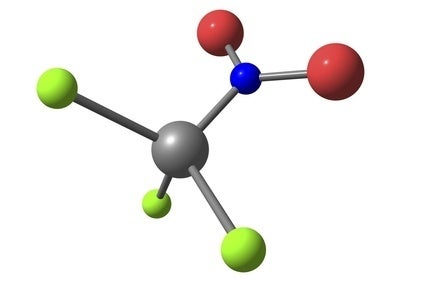
Honeywell says the report by the Professor of Inorganic Chemistry at Munich University concerning the contentious debate surrounding the r1234yf and r134a refrigerants, is “nothing new.”
Professor Andreas Kornath and his colleagues at the Bavarian institution released the report last month detailing its findings r1234yf was flammable, a position Mercedes-Benz has long adopted in its battle with the European Commission to have its alternative r134a coolant approved.

Discover B2B Marketing That Performs
Combine business intelligence and editorial excellence to reach engaged professionals across 36 leading media platforms.
“It has been known for some time now combustion of r1234yf results in production of the toxic hydrogen fluoride,” said Professor Kornath in an overview of the report.
“Our analysis has now shown 20% of the gases produced by combustion of the compound consist of the even more poisonous chemical, carbonyl fluoride [COF2].”
However, Honeywell is pouring cold water on the studies, maintaining its product is safe and is used by 12 automakers in 1m cars.
“The report is frankly nothing new,” Honeywell Fluorine Products Europe managing director, Paul Sanders, told just-auto. “The SAE looked in 2009 at COF2 formation and the Joint Research Centre [EC scientific body] also reviewed that work and confirmed there no safety risk.
“The COF2 story is old news and has been well stated for 20 years. Our view is it is not a safety issue at all – the KBA [Kraftfahrt Bundesamt – German road safety authority] has [said] it is not a product safety issue.
“Obviously we have the final ruling from the European Commission and the JRC at the end of January, which confirmed yet again the product is safe. All car manufacturers apart from one have confirmed the product is safe.”
The EC tasked the JRC in Italy to examine the findings of the KBA and noted there was “no evidence of a serious risk in the use of this refrigerant in MAC [Mobile Air Conditioning] systems under normal and foreseeable conditions of use.”
Mercedes maintains the r1234yf coolant could present a fire hazard in certain conditions and has now been formally authorised to use its r134a variant in its A, B, CLA and SL models, by France’s highest Court, the Conseil d’Etat.
But the issue has dragged in national governments, with the Commission launching the first steps of an infringement procedure against Germany for its supposed non-compliance with the Mobile Air Conditioning Directive.
Berlin however, says it is “not wise in the view of safety to use something that obviously bears risk.”
Honeywell insists “all automakers” know COF2 is also a combustion by-product of HFC-134a and has been “proven repeatedly” to be a very short-lived by-product in the event of a fire.”
In decades of experience with HFC-134a, “not one issue has ever been reported with it,” adds the chemical manufacturer.






